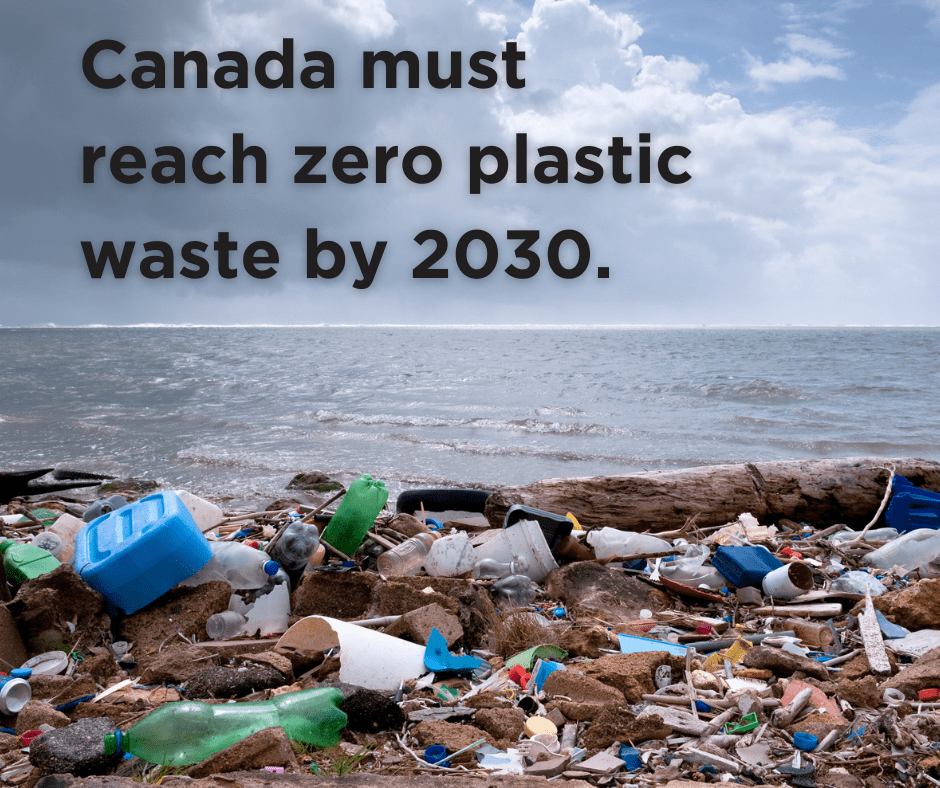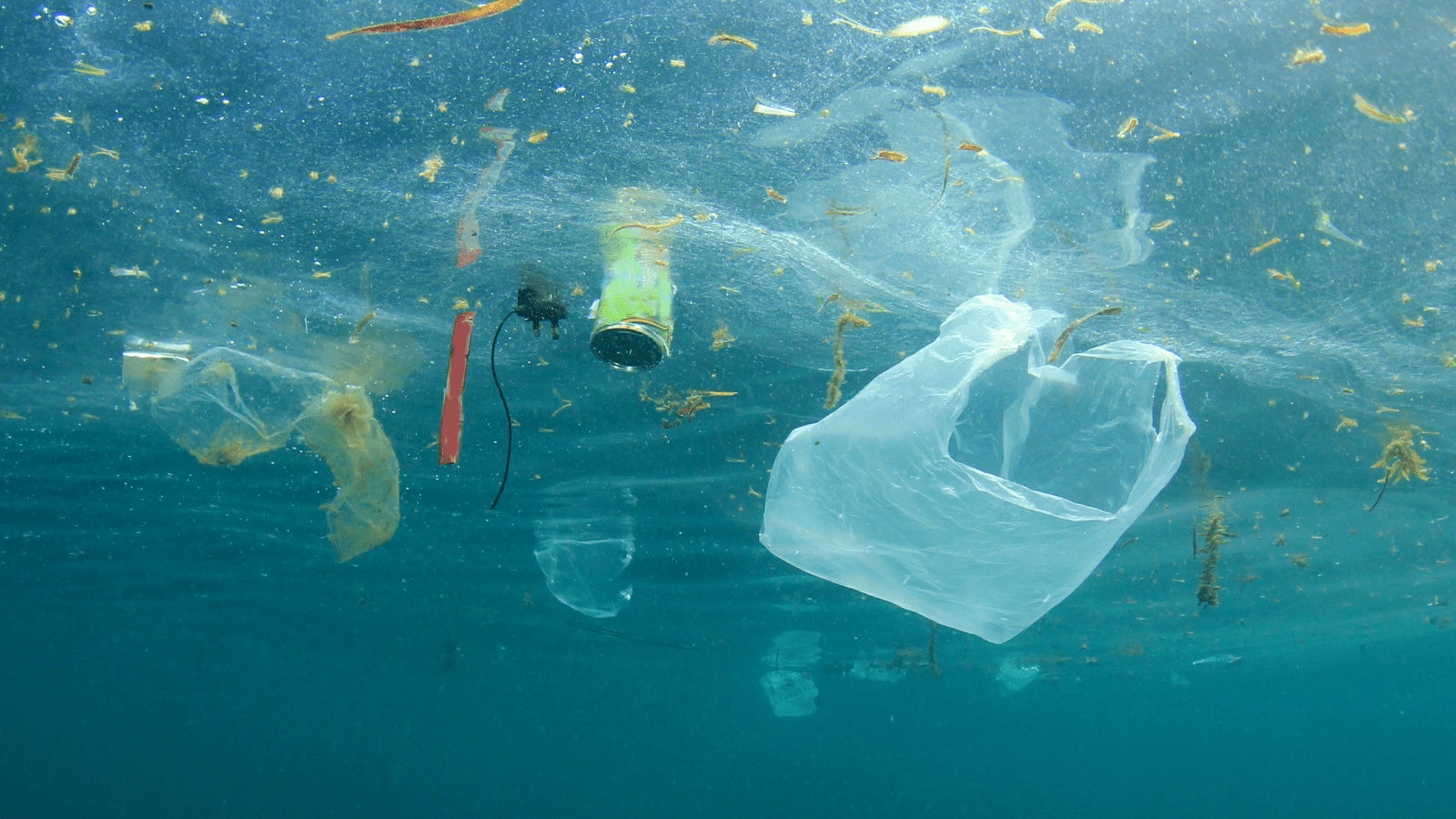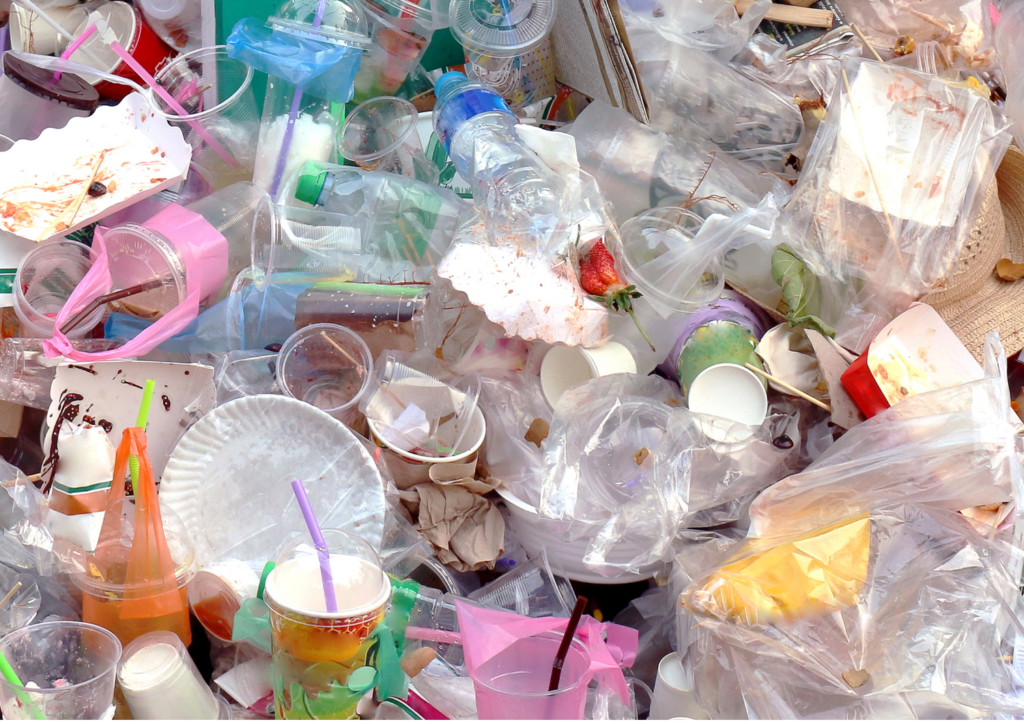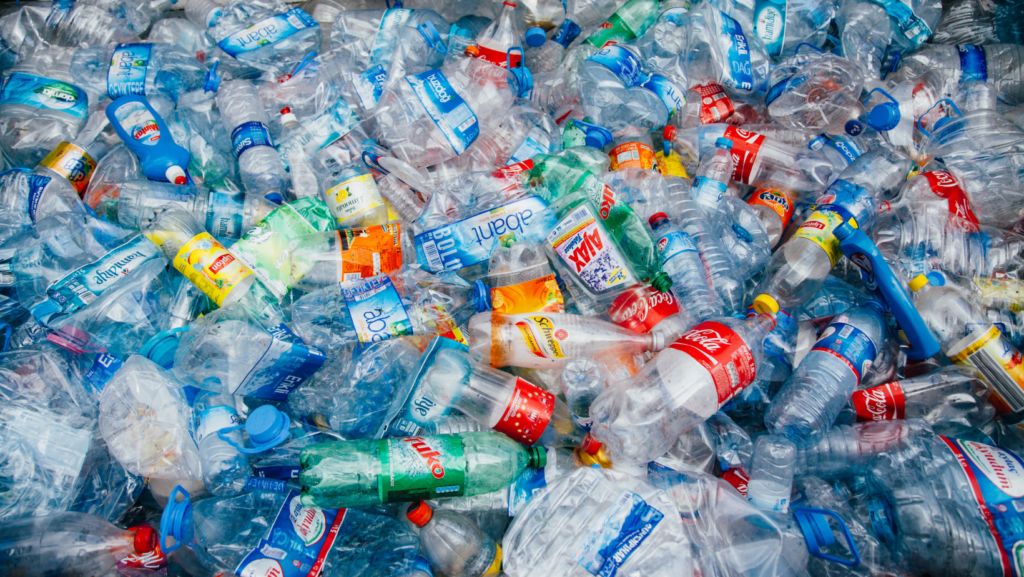Environmental Defence has partnered with more than 50 environmental groups to call on the federal government to end plastic pollution. We need the government to put its full attention, resources and regulatory power to work to reverse the crisis that is overwhelming the world’s oceans and natural habitats.

Canada is talking a good game on plastics, but the government doesn’t have the comprehensive plan it needs to get to the promised zero plastic waste by 2030. So we’ve provided Minister Guilbeault with a to-do list to help him get there. We’re calling for:
- Regulations that serve to eliminate all harmful and non recyclable plastics
- A shift away from single-use products and packaging in favour of reused one
- Accountability from plastic makers and other businesses about how much and what types of plastics they put on the market and what happens to it at the end of life
- International leadership by supporting an ambitious and legally-binding global treaty on plastics that addresses production, use and disposal of plastics.
We’re also demanding that the government reject false solutions to the crisis, including burning plastic waste as fuel. The plastics and petrochemical industry is trying to brand this as “advanced recycling” and pretends this is a reasonable way to deal with the ever-growing mountain of plastics it forces on us but the reality is that it’s unproven, expensive and polluting. It also makes no sense. These expensive facilities rely on constant streams of throwaway plastics, driving more – not less – plastic use and waste.
Plastics, which are made from fossil fuels, contribute to climate change and are disproportionately harmful to workers, low-income communities and Black, Indigenous people of colour who tend to live and work closest to plastic production and waste disposal sites.
Tackling the plastic pollution crisis is also an opportunity to shift our economy toward a zero-waste and fossil-free future. To help ensure that transition is a fair one, the government needs to invest in local reuse systems that create safe, decent jobs.
Canadians are the second highest users of plastic, on a per person basis, of any country in the world. We also export plastic waste to Global South countries, where it is often burned and pollutes local air and water, making people sick.
This has to change.
When environment minister Steven Guilbeault attends the United Nations Environment Assembly later this month, he needs to commit Canada to a global treaty on plastics that gets to the root of the problem. And we need a Canadian action plan that ensures we do our share to solve the crisis. We’ve already provided just such a plan to the Minister. The question is, will he listen?








